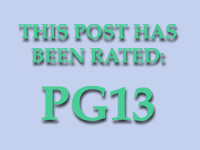On February 26, 2008 Google updated it’s AdSense program’s terms to include the following language:
coding
If Googleplex Employees Don’t Understand The Webmaster Guidelines, How Can They Expect Webmasters To Adhere To Them?
 Last month, in one of my posts, I had decided to include a few images to see how well they might rank for their keyphrases. I had never targeted any of the image searches, and due to one of the topics of the post it seemed like a good opportunity to do so. When I went to check later to see if the images happened to be indexed yet, they weren’t. It had only been a couple of days, and I really didn’t expect them to be there yet, so that was really no surprise. What did surprise me, however,
Last month, in one of my posts, I had decided to include a few images to see how well they might rank for their keyphrases. I had never targeted any of the image searches, and due to one of the topics of the post it seemed like a good opportunity to do so. When I went to check later to see if the images happened to be indexed yet, they weren’t. It had only been a couple of days, and I really didn’t expect them to be there yet, so that was really no surprise. What did surprise me, however,
Googlebot Creates Pages Instead of Simply Indexing Them: New FORM Crawling Algo Goes Bad
Last month Google revealed a new crawling method that they were testing out, whereby they were filling out forms on sites that they came across, in order to help facilitate the discovery of new pages. Matt Cutts discussed it here last month. I had noticed the phenomena
Introducing: PuzzCAPTCHA Advanced Comment Form Protection, LinkMyPics – The Hotlink Advantage Maximizer… Oh, and Evan Rachel Wood, Topless [NFSW]
 No, my blog wasn’t hacked by porno webmasters, and no, I’m not converting Smackdown to an adult website (although, to be honest, kids or sensitive people should always approach my blog with caution). I wanted to test some of the various image search algos, and as it just so happens the search [Evan Rachel Woods Topless] currently brings up no valid results on Google Images (which kind of surprised me, but more on that at the end). Since I am also releasing a WordPress plugin to help prevent comment spam (which blogs coming up for queries like that probably encounter a ton of) and a very nifty little widget that helps turn image and bandwidth theft into links, I figured I would do all 3 at once. I promise, I am putting all of the questionable images way below the fold… so if you are the sensitive type,
No, my blog wasn’t hacked by porno webmasters, and no, I’m not converting Smackdown to an adult website (although, to be honest, kids or sensitive people should always approach my blog with caution). I wanted to test some of the various image search algos, and as it just so happens the search [Evan Rachel Woods Topless] currently brings up no valid results on Google Images (which kind of surprised me, but more on that at the end). Since I am also releasing a WordPress plugin to help prevent comment spam (which blogs coming up for queries like that probably encounter a ton of) and a very nifty little widget that helps turn image and bandwidth theft into links, I figured I would do all 3 at once. I promise, I am putting all of the questionable images way below the fold… so if you are the sensitive type,
Advanced Web Usability: 5 Important Lessons Learned From Digg
 In the early days of the Internet, one of the biggest attractions was the fact that absolutely anybody was able to sign up for a free email account, and with it get their very own webpage. No design experience whatsoever was required for this… and it showed. Gaudy was vogue, and if you doubt me spend some time on the Internet Archive to see what I am referring to. With continued ease of use and the advent of cheap hosting, this trend continues even today. However, fortunately for those of us who are in fact design-challenged (and yes, in general I do include myself amongst the masses when it comes to a lack of graphic arts talent) in modern times we have leaders in the industry we can emulate when we want to learn how things should be done. Today let us turn to one of the Internet giants for our lessons in usability, to none other than Digg.com itself.
In the early days of the Internet, one of the biggest attractions was the fact that absolutely anybody was able to sign up for a free email account, and with it get their very own webpage. No design experience whatsoever was required for this… and it showed. Gaudy was vogue, and if you doubt me spend some time on the Internet Archive to see what I am referring to. With continued ease of use and the advent of cheap hosting, this trend continues even today. However, fortunately for those of us who are in fact design-challenged (and yes, in general I do include myself amongst the masses when it comes to a lack of graphic arts talent) in modern times we have leaders in the industry we can emulate when we want to learn how things should be done. Today let us turn to one of the Internet giants for our lessons in usability, to none other than Digg.com itself.
Birthplace Of Google Gets Hacked: Blog On Stanford.edu Hit By Latest WordPress Exploit
 It looks like even Stanford University, where Google was born, has been victim to the latest WordPress exploit going around.
It looks like even Stanford University, where Google was born, has been victim to the latest WordPress exploit going around.
I was poking around in the serps from the query I showed in the last post, seeing what blogs had been hit,
New WordPress 2.3.3 Exploit/Vulnerability – Adds Spam Directory /wp-content/1/
 Ok, so I just had 2 of my WP installs hacked, on 2 different servers. This is not the same thing that Shoemoney reported on a few days back (hidden link injection), and as of yet I have not seen any definitive answers as to what it is. All of my blogs were upgraded to 2.3.3 last month, and in all but 2 of them the only thing that was kept
Ok, so I just had 2 of my WP installs hacked, on 2 different servers. This is not the same thing that Shoemoney reported on a few days back (hidden link injection), and as of yet I have not seen any definitive answers as to what it is. All of my blogs were upgraded to 2.3.3 last month, and in all but 2 of them the only thing that was kept
Maybe The Wired Guys AREN’T The Tech Geek Gods We All Thought They Were
Yesterday, Smackdown noted that Wired put a robots.txt in place in response to spammers trying to use their wiki for spamalicious links. Oddly enough, that robots.txt also blocked everyone and everything, including Google and all the rest of the search engines, from the site. (Caveat: When I say “blocked everyone”, I’m referring to everyone who bothers to adhere to robots.txt).
Wired Says Screw It To All Search Engines After SEL Inspired Spam Attack, Disallows EVERYTHING With Robots.txt
So, it looks like after the mishap this past Friday, where SEL accidentally exposed the Wired How-To wiki to spammers, Wired has instituted their new spam deterrent measures. They seem to have gone just a tad bit overboard, if you ask me. 
Newbs, ‘Science’ Spinning, ‘Teesway One Nine Nine’, And A Saturday Meme
One of the sites I own happens to involve electronic poetry. On that site, on the bottom of the pages, I incorporated a news feed. Nothing fancy, just shows a few stories, their headlines, links, and brief snippets. Occasionally, for news stories with very few results, someone will stumble across my site when researching the topic. The site doesn’t have a ton of ranking power, and it is in no way optimized around the content of the news stories. They are just there to give the readers access to more sites to browse through, should they want to.
Occasionally, I will get an email from someone relatively new to the internet, wondering why my site shows on a search for the title of a poem they wrote, or a speaking engagement they performed at, but they do not see anything about it on the page. I will write these people back, explaining that they need to look at the cache of the page, since the news feed is of course dynamic, and the stories indexed when Google went there are usually not the same ones that are there days later. Most say thank you, and wind up understanding just a wee bit more about the internet.
All of them are for the most part just curious, knowing that they don’t know that much about the internet, and all of them are generally speaking quite polite. Until, that is, this peach involved with some obscure work, “Teesway One Nine Nine”.